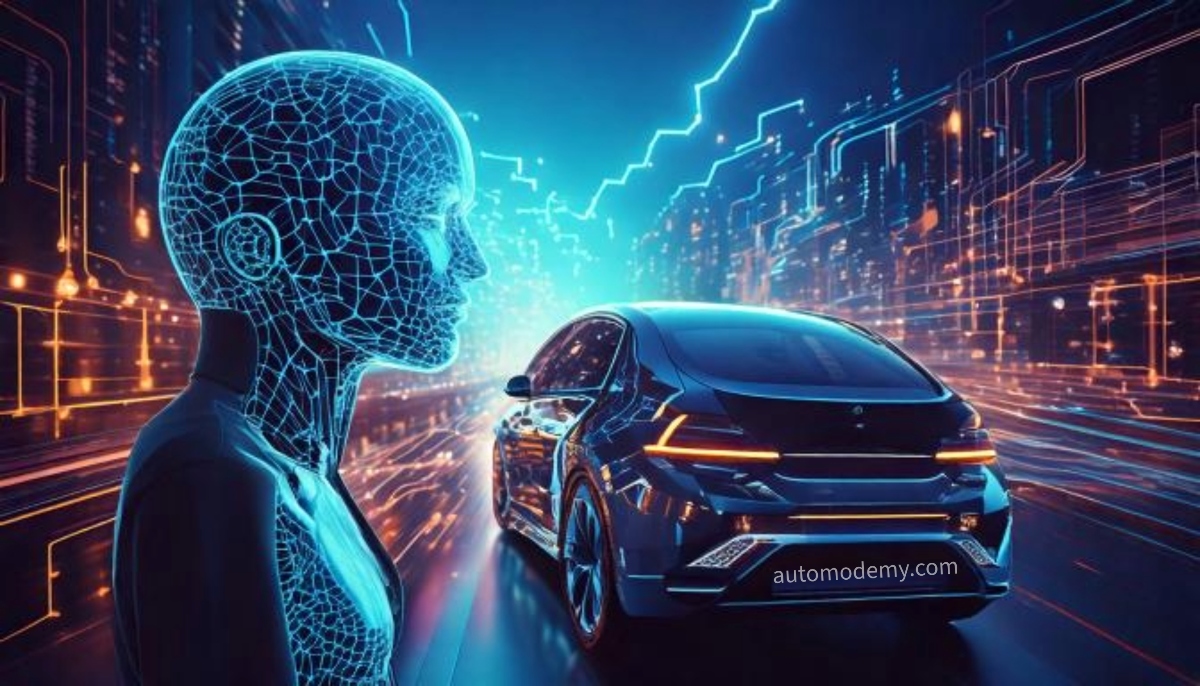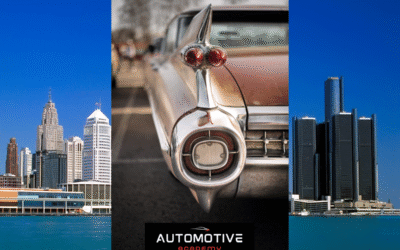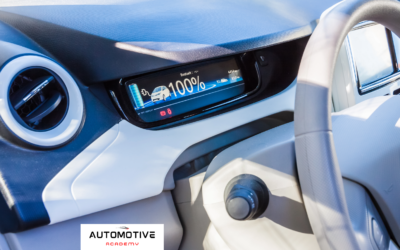🚗 Automotive and Artificial Intelligence: A Revolution in March 🤖
The automotive sector is undergoing an unprecedented transformation thanks to the integration of theartificial intelligence (AI) at multiple stages of the product life cycle. From design to manufacturing to autonomous driving, AI is redefining the future of the automotive industry, creating new opportunities and challenges for the industry.

1. AI in Automotive Design
Artificial intelligence is improving vehicle design through advanced tools for predictive modelling and simulation. AI-based software can analyse millions of variables in real time to optimise the design of new models, reducing the time and costs associated with development. An example is the use of machine learning algorithms to improve aerodynamic performance and structural safety.

2. AI in Production and Quality
Automotive manufacturing is one of the areas where artificial intelligence has had the greatest impact. Thanks to technologies such as the advanced robotics and the automated quality control systemscompanies can achieve unprecedented levels of efficiency and precision. AI systems analyse data collected along production lines in real time, identifying defects and optimising production processes to reduce waste and improve final quality.

3. Autonomous Driving and AI
One of the most revolutionary developments is the integration of AI in the autonomous driving. Companies such as Tesla, Waymo and many others are developing autonomous vehicles capable of analysing complex environments and making split-second decisions thanks to sophisticated algorithms. deep learning. Autonomous vehicles not only promise to reduce road accidents, but also to radically change the concept of mobility.

4. AI and Predictive Maintenance
Thanks to AI, modern vehicles are equipped with predictive maintenance that constantly monitor the operating condition of critical components. These systems can predict when a part might fail, enabling owners and workshops to carry out preventive repairs, reducing downtime and maintenance costs.

5. User Experience and AI
AI is also transforming the driving experience. Virtual assistants such as Alexa Auto and intelligent infotainment systems can respond to voice commands, providing traffic information, suggesting alternative routes and even controlling the environment inside the car. In addition, AI is improving the customisation of vehicles, adapting driver preferences according to driving habits and behaviour.

6. AI and Automotive Cybersecurity
With the increasing connectivity of vehicles, the cybersecurity has become a priority for the automotive industry. AI is playing a crucial role in protecting automotive networks from cyber threats, detecting anomalous behaviour and responding to potential attacks in real time.

Challenges and Opportunities
Despite the progress, there are still many challenges to be faced. Regulation, reliability and security of AI-based systems are central issues that the industry will have to resolve. Furthermore, the ethical management of artificial intelligence requires deep thought, especially in an industry where security is paramount.

Conclusion
Artificial intelligence is transforming the automotive world, paving the way for a new era of innovation, efficiency e security. Companies that know how to adapt and integrate AI into their processes will have a significant competitive advantage in the global market.

We are only at the beginning of this technological revolution, and the prospects for the future of the automotive industry are exciting. 🚀





0 Comments